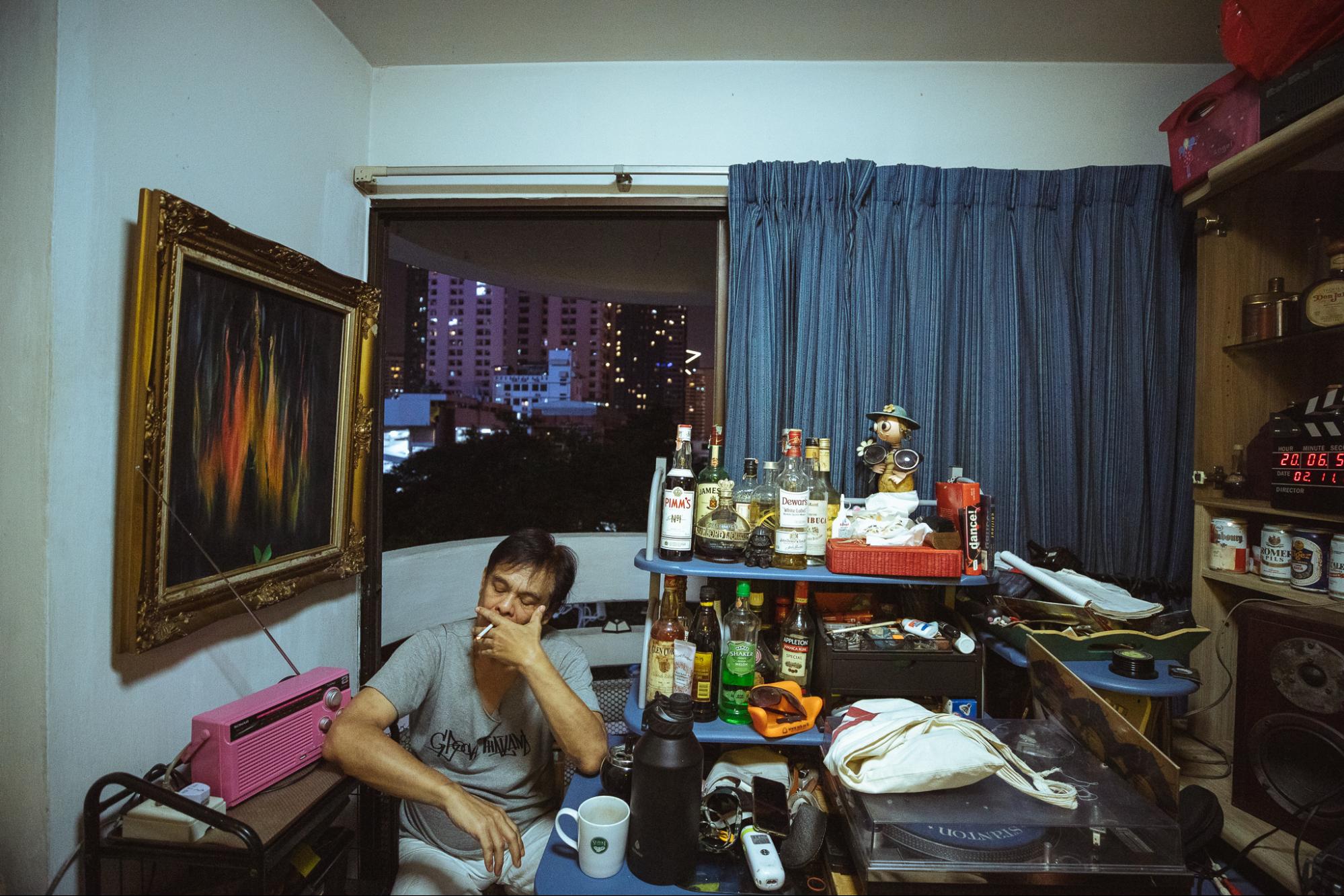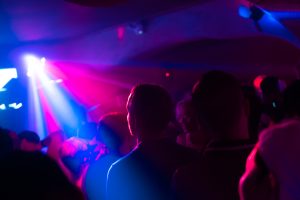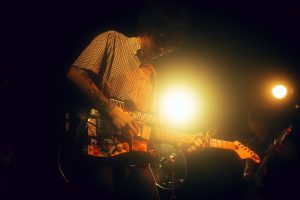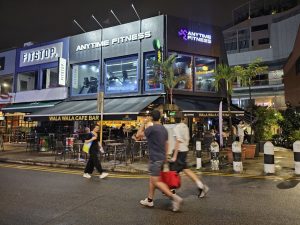Whenever I ask the teenagers who grew up in the 90s about parties on Thonglor Road and RCA, I’m always told that they used to be way more fun than they are today. When they tell me how they would rave at RCA till morning, I can only wonder what that was like.
I was able to get an interview with Tui, the former owner of Club Culture, Club Astra, and Cafe De Moc. He’s also hosted the Culture ONE music festival, and whenever anyone asks him about drugs, he says that all kinds are good. He’ll also say that many ravers use drugs for intoxication, rather than to heighten their appreciation of the music, which has led to the death of the club scene.
He recounts how, back in the 1990s, Club Astra used to hold over 2,000 people a night. Weekends were always packed, especially during Dudesweet parties. At one point, 5,000 tickets were sold even though the club couldn’t even fit that many people.
Tui is one of the few people who’s able to tell us that Ecstasy first came to Bangkok during the 90s, and how alcohol marketing changed consumers’ behaviour—many going from sipping cocktails to opening bottles of whisky.
He even witnessed death when one of the clubbers fell off Club Astra’s second floor balcony. Back then, ravers were always high, and for 6 years, the DJs put on the same music. If you Google the song ‘Want Love – Hysteric Ego’, you might find it very familiar.
He told us, “I was there among the Thai ravers and ecstasy. Many view the 90s as the best era. We partied even harder than the Europeans. But all that is declining.”
It strikes me that Tui hates drug abusers. I always thought that as a club owner he loved partying with them, but he also believes that there were too many naive drug users who did not listen to dance music, and this inadvertently caused the death of the club scene.
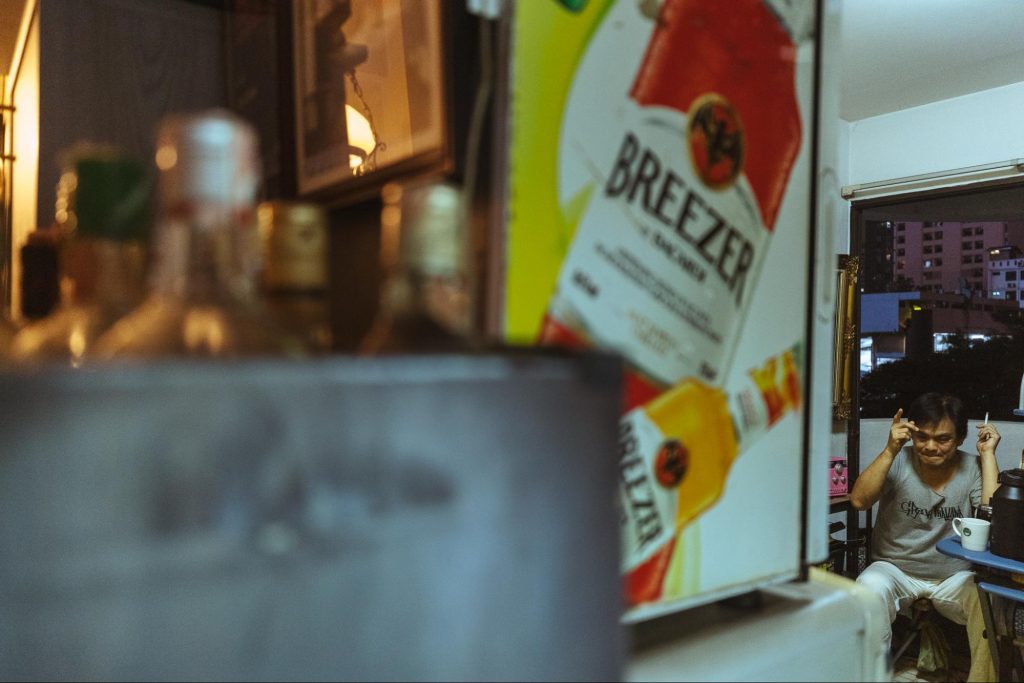
In his cosy apartment, surrounded by unfamiliar vinyls, bottles of liquor, and enveloped by smoky air as one cigarette after another was lit, it felt like I was sitting in an old bar.
Many other things in his apartment seemed to tell their own story. The unpleasant carpet odour, the two cheerful pomeranians, abstract paintings, vinyl shelves, a DJ booth, old photograph collections.
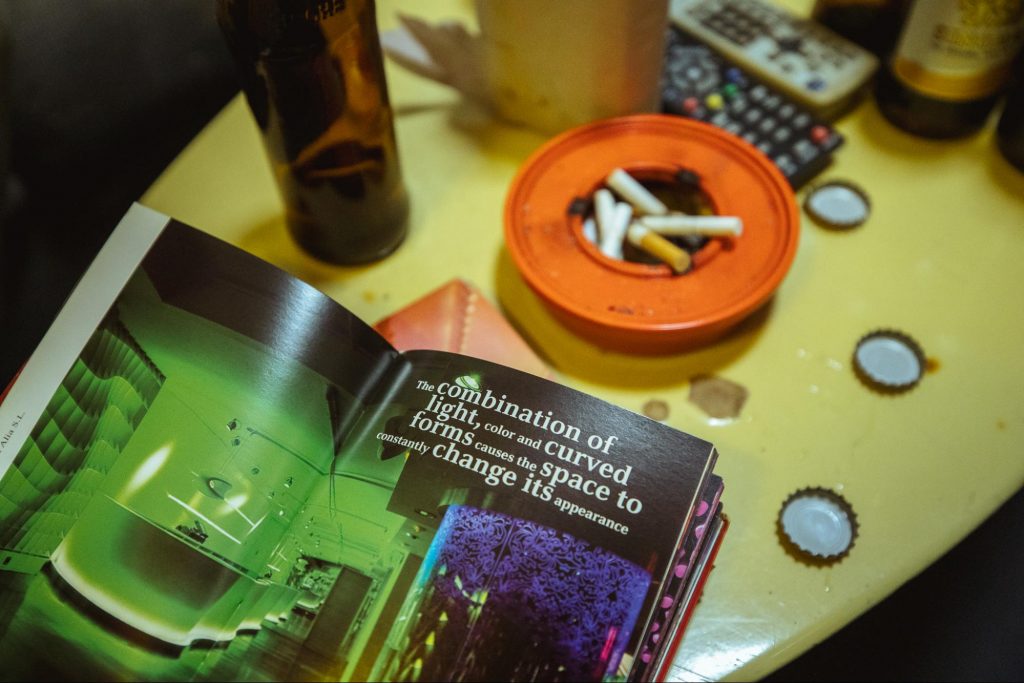
Drawing from his clubbing experiences in Europe, he could capture the perfect club ambience. With his love for dance music, he was inspired to create the best club scene in Bangkok.
“Many have asked me, why are my parties so memorable? I always answer them that I didn’t use drugs when I hosted my own parties. I created them out of my passion for music and the right atmosphere.”
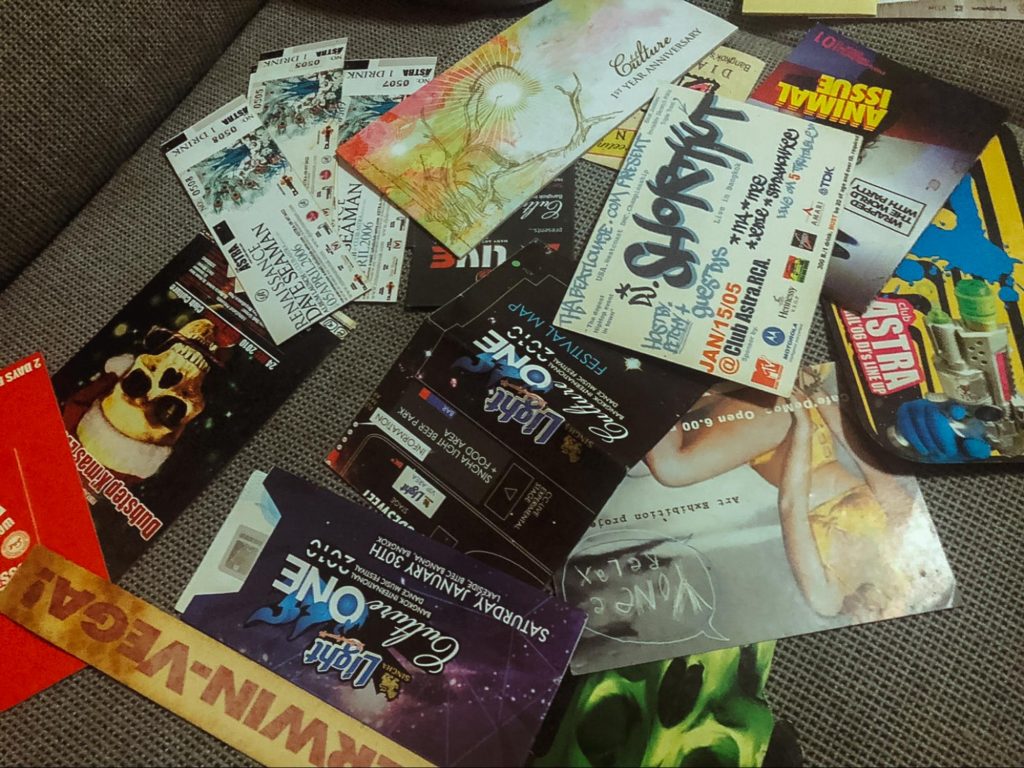
I’ve also heard what people have said about Berghain—Berlin’s legendary underground Techno club. If you google ‘Berghain’, you will find that people cannot stop talking about how to get into Berghain and spending more than 10 hours in Berghain.
But how did drugs become such a big deal in Bangkok? Tui explained that it was because Thai clubbers used drugs with improper knowledge of dance music. Ravers would only remember the feeling of being high, not the good music.
Tui might be one of the few people in Bangkok who has actually been educated in DJing. He had his first experience with an English expat who came to Bangkok in the 80s to promote dance music records. This is possibly why he thinks of dance music differently from most Thai people.
“To me, the 80s was the best clubbing era of Bangkok. I was always DJing with the latest records while others still dug for old songs. I play music to make history. I like to tell people how life will be like tomorrow.”
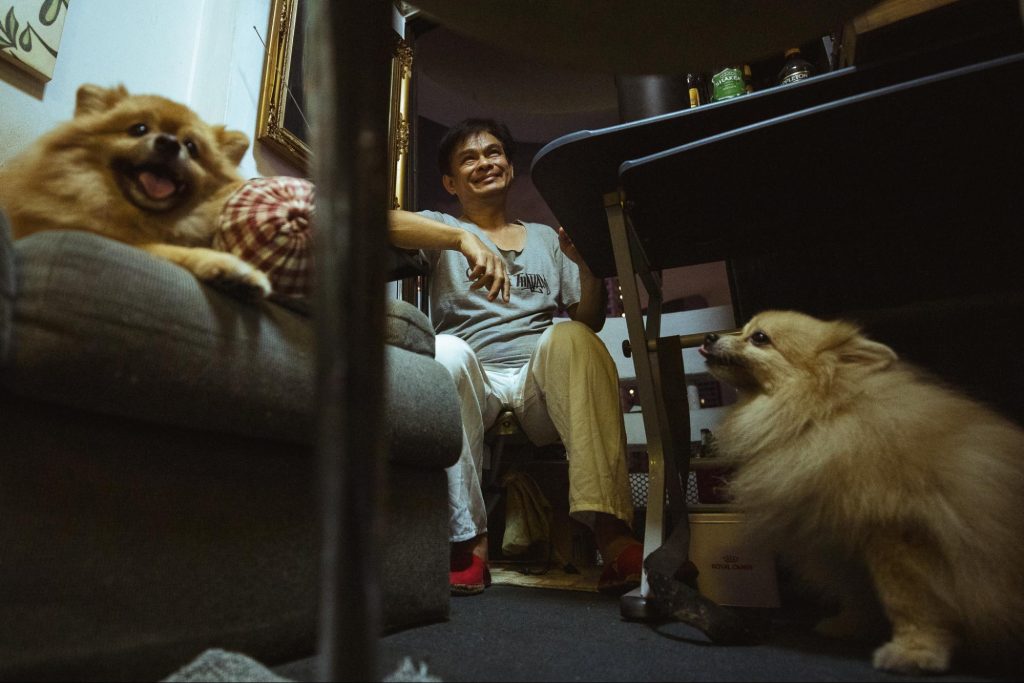
He proudly announced that Thailand used to have one of the largest club scenes in Asia. Back in the late 80s, he Deejayed at Club NASA with over 7,000 people. He described crowds as if they were the largest human waves he had ever seen in his life.
“People who came to the party didn’t say which songs they liked the most. They actually appreciated the club’s atmosphere. It is like going to an art exhibition where colours, rocks, steel were formed into one piece. People don’t appreciate them because they are rocks, but because of the perfect atmosphere.”
Tui recalled when he used to be surrounded by crowds who loved the same music and atmospheres as him. Time has separated him from the good old days; the drug scene holds nothing but bad memories for him.
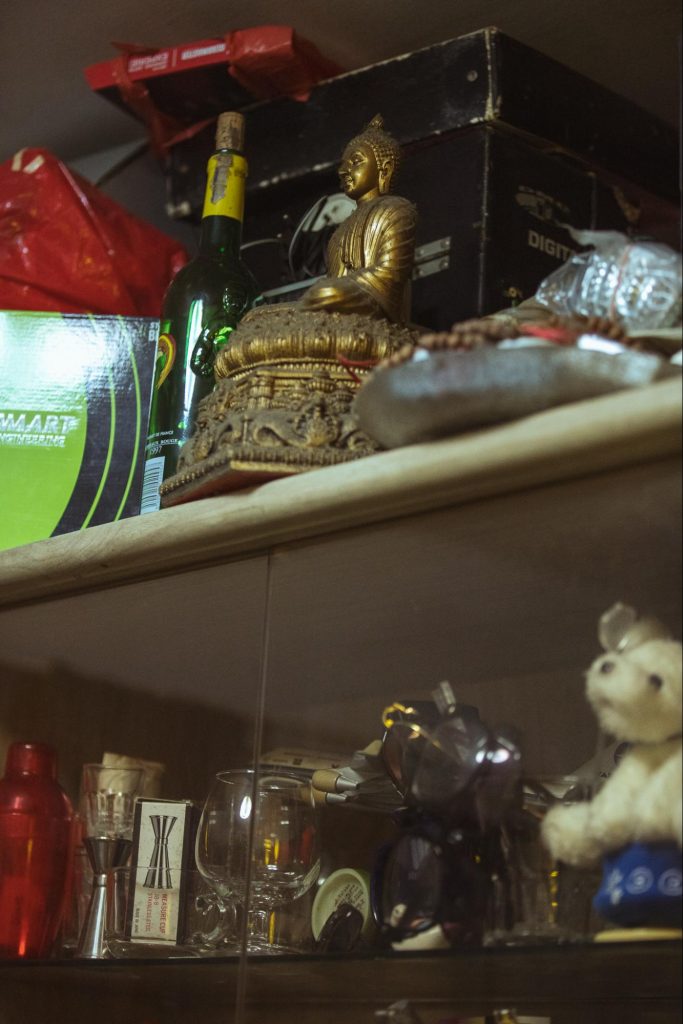
Since 2010, the government has promoted Thailand as a Buddhist country. Clubs, bars, and restaurants have not been allowed to operate after midnight, and alcohol and clubbing are perceived as ‘sins’ under the Buddhist Bible.
Tui revealed that even though Club Culture was very popular among the underground teenagers, he couldn’t afford to pay the bills. Before the police raids in 2010, his clubs were built with his passion. Eventually, they started losing popularity because no one really listened to the music.
“Both Club Culture and Club Astra don’t benefit, I wouldn’t call it a success (in terms of business) but I get to see my own imagination put towards the dance floor.”
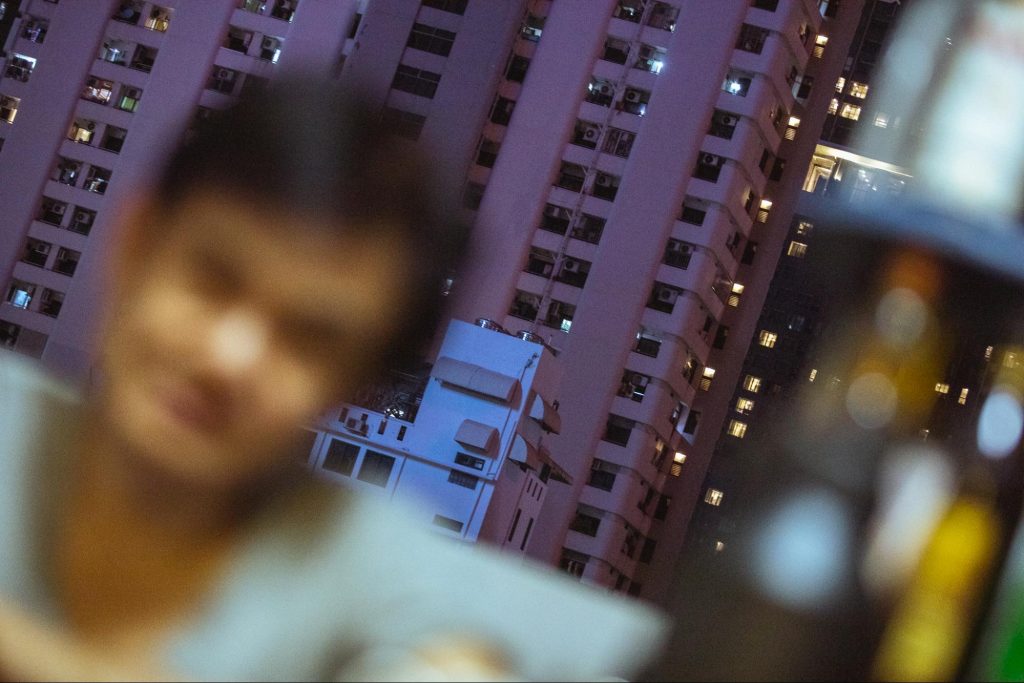
Even though Club Culture is over, there has never been an open discussion about drug issues in Thailand. We all know that drugs are easier to find than before, and that cocaine, weed, and MDMA can be delivered as quickly as ordering pizza. But all the government is doing is arresting drug users on the streets.
90s ravers, as well as young people like me, are still longing for nights like the ones at Club Culture. There are new underground parties, but they are unlikely to survive in this economy with the police’s focus on Techno parties as ‘Drug Parties’.
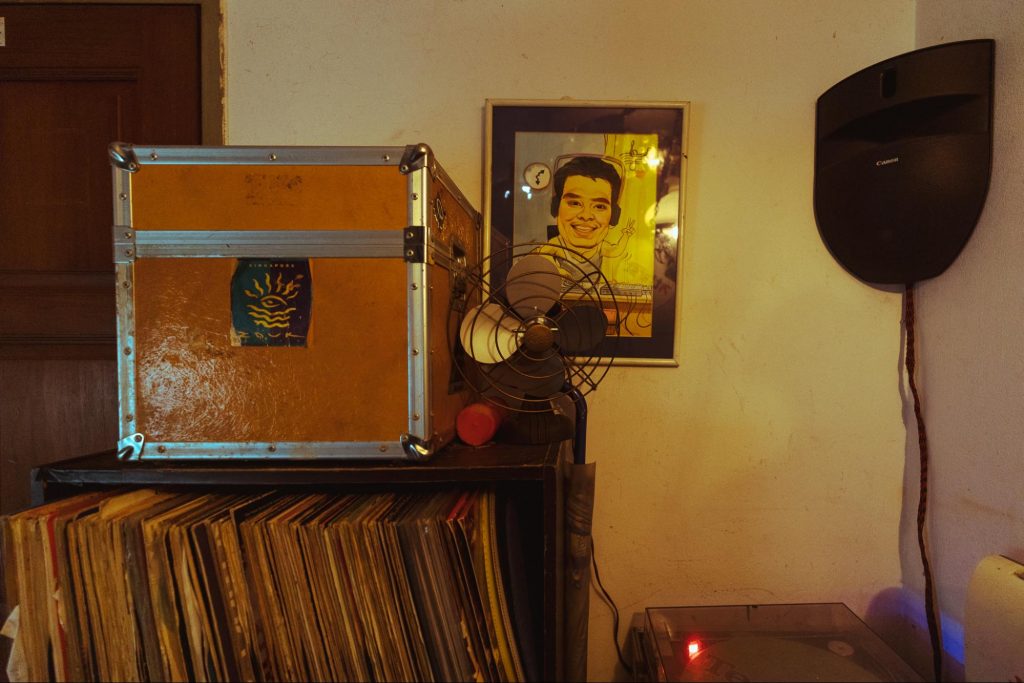
He lights his last cigarette while pouring me a glass of homemade Sangria. It is one of my favourites, and also his. He continues to reminisce about the days that made his heart bloom.
I feel jealous of Tui’s ikigai, and how he’s found his happiness in his own path of life.
As the music ends, he proudly says, “My life is like retirement ever since I graduated from law school.”
What kinds of stories would you like to hear from Thailand? Tell us at community@ricemedia.co.

